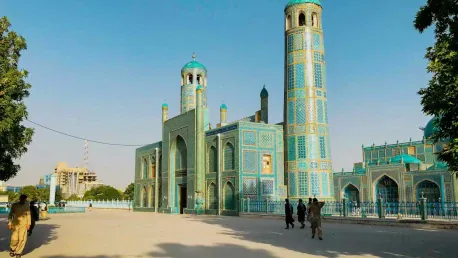Afghanistan is currently experiencing an educational transformation under the Taliban regime, characterized by a significant rise in the number of religious schools. As the nation grapples with severe economic challenges and social unrest, the pervasive growth of religious education raises critical questions about its future stability and development. The emerging landscape could spell economic inefficiency, social repression, increased vulnerability to extremism, and the marginalization of practical educational skills essential for national progress.
The Current Educational Landscape
Recent reports from the Ministry of Education in Taliban-controlled Afghanistan reveal troubling statistics, indicating a systematic shift in the country’s educational priorities. The number of religious schools has now surpassed 21,000, enrolling over 3.5 million students. In stark contrast, the total number of regular public and private schools stands at about 18,000. This disparity points to an entrenched trend where religious studies are prioritized over practical, employment-generating skills. Consequently, Afghanistan’s capacity to cultivate a skilled workforce that could sustain its economy is severely undermined, raising concerns about the country’s future prospects.
The rise in religious schools represents more than just numbers; it embodies the broader socio-political aims of the Taliban to reshape the fabric of Afghan society. While traditional public schools focus on imparting diverse knowledge and practical skills, religious institutions emphasize theological training that aligns closely with the Taliban’s ideological views. This shift undermines the potential for economic development as it cultivates a generation ill-equipped to engage in modern, skills-based employment sectors. The widening gap between religious and public education creates an imbalance, signaling the Taliban’s intent to steer Afghanistan in a direction that supports their ideological and political dominance.
Economic Ramifications of Religious Education
Afghanistan’s economy, heavily reliant on foreign aid, requires a robust education system that equips its youth with practical skills essential for self-sustenance and economic stability. Referencing frameworks like Maslow’s hierarchy of needs and UNESCO’s educational benchmarks, it is clear that economic stability is a foundational prerequisite for a thriving society. However, the current emphasis on religious education leaves graduates ill-prepared to enter the workforce, contributing little to economic productivity. Most students from these religious schools often become reliant on charity and fail to break the cycle of poverty and foreign dependence.
The focus on religious education detracts from essential skill development, leaving a significant portion of Afghanistan’s youth without the tools needed to contribute meaningfully to the economy. This lack of practical education has far-reaching implications, not just on individual livelihoods but for the national economy at large. An education system that produces scholars who are dependent rather than economically productive exacerbates poverty and increases reliance on aid. Therefore, the quality of education directly impacts the nation’s economic trajectory, making the current trends under the Taliban a cause for significant concern.
Social Consequences and Ideological Rigidity
The proliferation of religious schools under the Taliban’s regime also engenders far-reaching social consequences. The curriculum fostered by the Taliban promotes an environment of ideological rigidity, discouraging critical thinking and the acceptance of diverse viewpoints. Students in these schools often grow up with an inflated sense of self-righteousness, believing they represent divine authority. This mindset not only stymies societal acceptance of a wide range of perspectives but also turns these students into agents of social repression, championing authoritarian norms and curtailing intellectual freedom.
The social fabric of Afghanistan is being reshaped in ways that could destabilize its future cohesion. By promoting a narrow worldview, these religious schools hinder the development of a society that values democratic principles and critical inquiry. The resulting social repression is not just an immediate concern; it has long-term implications for the nation’s ability to engage with the international community and foster internal unity. The Taliban’s ideological approach to education is producing a generation that may be resistant to change and innovation, thereby affecting Afghanistan’s ability to progress as a modern state.









